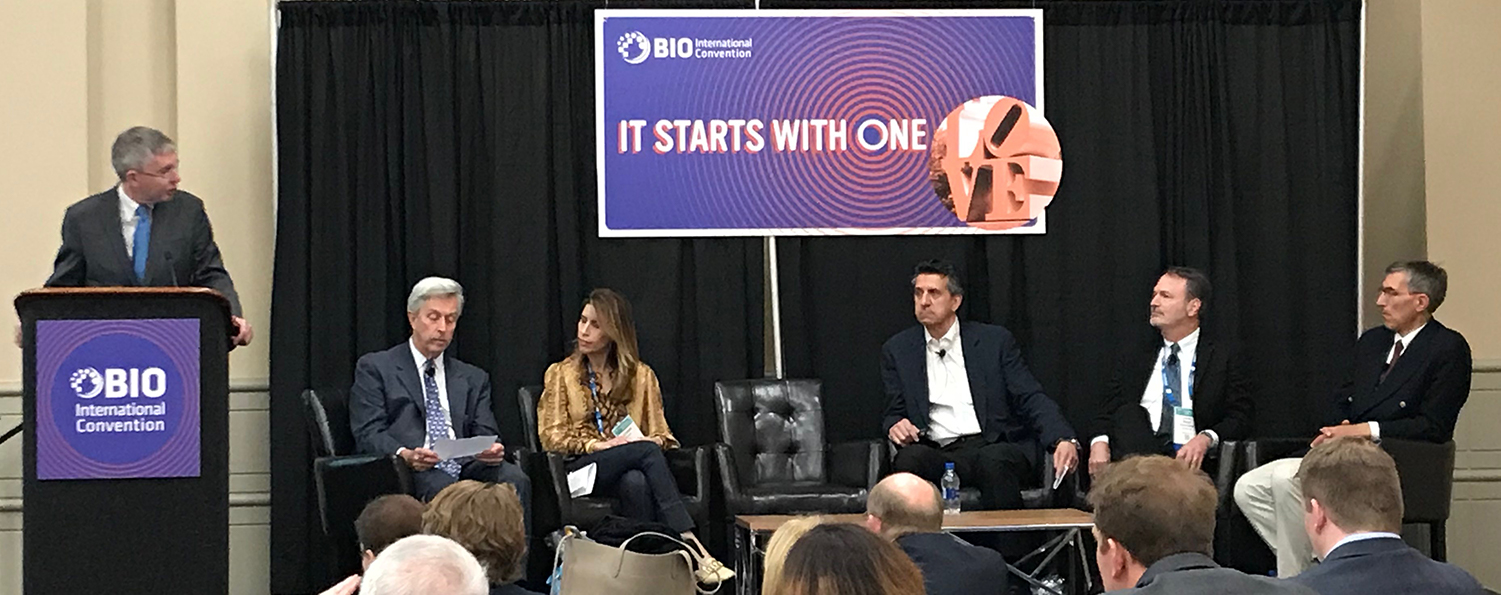- Home
- BioInnovation on Parade: Philly Stands Proud for BIO 2019!
BioInnovation on Parade: Philly Stands Proud for BIO 2019!
Published on 10 June 2019
Scott Deeter
Last week was the annual Biotechnology Industry Organization (BIO) annual convention in Philadelphia where medical innovations were abundant and showed remarkable promise. More than 17,000 delegates representing government, academia, and non-profit research institutes joined more than 4,000 companies in the City of Brotherly Love. The delegates share a common commitment to improve the quality and longevity of life through development of innovative modern technologies, many of which are being commercialized at a pace not seen before. From vaccines to cell therapies and gene therapies, new products are promising substantial improvements to human health.
Exciting Announcements in Gene Therapy
To start the week of innovation on the right note, bluebird bio announced EMA approval of its newest gene therapy, Zynteglo; virus modified autologous CD34+ stem cells to treat certain transfusion dependent beta thalassemia patients. These patients now have the potential for a transfusion-free future. bluebird bio joins recent entrants Spark Therapeutics, developer of Luxturna for genetic mutation-caused retinal dystrophy, and AveXis, who announced approval of Zolgensma a gene therapy for spinal muscular atrophy Type 1. Not only are these new products breakthroughs that promise a cure for patients with debilitating genetic diseases, they also represent a new class of medicine – gene therapy.
Gene therapies harness the power of virus to deliver instructions to human cells that correct genetic errors which cause disease. Although it is early, the improvements in quality and longevity of life for those afflicted with these diseases has been nothing short of remarkable. And, there is much promise on the horizon with more than 700 clinical trials involving gene therapy, or gene modified cell therapy, in the development pipeline according to Alliance for Regenerative Medicine.
Influenza Prevention Takes Center Stage at BIO2019
Another area of much needed innovation highlighted at BIO 2019 was related to influenza prevention. The industry is mobilizing technology to replace egg-based influenza vaccines with better cell-based vaccines that are more effective, agile and faster. There are more than 300 million influenza vaccine doses administered each year around the world and nearly all are egg-based.
Speed is an important aspect of influenza vaccination because an early availability of the vaccine can lead to substantially less hospitalizations. Cell-based vaccines provide enhanced speed to market, meaning that they can be better matched to circulating strains and offered earlier in the season. And, if the vaccine is well-matched to circulating virus, it is more likely to be effective at preventing infection.
Gordon Naylor, President of Seqirus, a global influenza vaccine company, presented data showing the eight-fold increase in cell-based vaccine manufacturing from less than 1% of the market in 2014 to more than 8% in 2018. This is astonishing growth. It is true that egg-based vaccines are “better than nothing”, according to FDA CBER’s Peter Marks, but he challenged the industry to strive for better than 30-35% effectiveness.
 Gordon Naylor, President of Seqirus presents at BIO 2019 and shares insights into the benefit of cell-based vaccines to replace egg-based manufacturing.
Gordon Naylor, President of Seqirus presents at BIO 2019 and shares insights into the benefit of cell-based vaccines to replace egg-based manufacturing.
Luckily for all of us, innovators are busy at work and are not happy with 30%-35% effectiveness of egg-based vaccines. A very exciting innovation that may improve the effectiveness of the influenza vaccine to more than 50% effectiveness was described by FluGen’s CEO and Founder, Paul Radspinner. He shared evidence that this may be possible and has Phase 2 human clinical challenge data that suggests his team is on the right track. It is known that getting the flu is the best way to prevent the flu in subsequent years. However, getting the flu to prevent the flu isn’t very appealing to most of us. What Paul and his team at FluGen have done is to modify the influenza virus so that it can’t replicate in the human body, so the FluGen modified virus doesn’t cause the flu. Yet, it does trigger the preventative benefit of getting the flu, which is the best form of prevention. If clinical studies already underway continue to show promising results, this would be a step-change in terms of vaccine effectiveness.
The rate of innovation in Philly at BIO 2019 was remarkable and exciting. I can only imagine what innovators have in the pipeline for next year’s conference in San Diego!